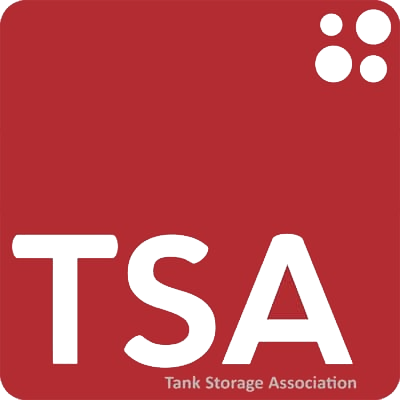Risk Management: Self-paced Online, Live Online and Face-to-Face Training Courses
The EI has taken advantage of its long-standing experience and expertise to develop a comprehensive training portfolio to support organisations in the fields of Human Factors, Process Safety, Quantitative Risk Management and Asset Management.
Understanding, evaluating and taking action on risks is vital in high-hazard organisations. The potential severity of the risks involved, highlighted by several high-profile incidents, demonstrates the importance of risk management in mitigating the dangers of any potentially hazardous activity.
The majority of our Training Courses are once again being held face-to-face in the classroom, giving delegates the opportunity to network and learn from each other. In addition to face-to-face courses, we continue to offer self-paced online courses that can be started at any time, and live online courses.
In-house options are also available and can be run virtually online or at your place of work, to suit your needs. Please contact [email protected] for further information.
Human Factors Courses
Our unique Human Factors Training developed with safety specialists — the Human and Organisational Factors Committee, to continually improve the safety performance of the energy industry and beyond, contributing to responsible, safe and sustainable operations.
Human Performance in the Energy Sector — Self-paced Online
This is a unique professional development self-paced online pathway, the first of its kind, developed specifically to address a business need for human factors skills.
- Introductory Module (only £20)
- Level 1
- Level 2
- Level 3 — Coming soon
- Full Human Performance Learning Pathway for the Energy Sector (Including Level 3)
Managing Fatigue
Fatigue affects everyone, and can have serious implications not only for your health and wellbeing, but the safety of operations. Fatigue has been implicated in several major accidents, and is a common cause of driving accidents. Learning how to recognise the symptoms of fatigue in yourself and in your team is vital with this self-paced online module.
Human Factors Foundation
This course delivers a comprehensive introduction into human factors for non-specialists. Learn the importance of Human and Organisational factors in high-hazard industries and how these influence behaviour at work to improve your health and safety performance.
Conducting Incident Investigations & Analyses using the Tripod Beta methodology
This 3-day course will provide you with both a theoretical and practical overview of the Tripod Beta methodology, enabling delegates to support and conduct incident investigations and analyses
Safety Critical Task Analysis
This course will be addressing Human Factors issues in COMAH Safety Reports, teaching delegates how to carry out Human Factors Safety Critical Task Reviews.
Delivering Safety Culture Change Using the Hearts and Minds Toolkit
This interactive course and certificate, delivered across 3 full days (classroom course), will teach delegates the fundamentals of improving safety culture using the award-winning Hearts and Minds toolkit, focusing on the various stages of a culture change programme, from design to implementation and review.
Task Improvement Process
Task Improvement Process (TIP) is intended as a practical task analysis technique used by those who carry out activities at the front line. It is used to identify a) how tasks are actually conducted (i.e. work as done vs. work as imagined), b) what mistakes can be made (i.e. human error), and c) what improvements can be made to the task to reduce the likelihood of those mistakes happening.
This short self-paced online module provides instruction on how to carry out TIP, using videos, text, and quizzes. It also includes downloadable worksheets to be used when carrying out TIP to analyses tasks.
Why care about Human Performance – watch our short video
Process Safety Courses
Effective process safety management should minimise major accidents such as fires and explosions. Learn and assess how to control them; in particular, by containing dangerous substances and pressurised systems and keeping them under control.
Working in line with the EI Process Safety Committee, we're supporting organisations in achieving best practices as a core component of their risk management strategy.
Introduction to Process Safety Management — Self-paced Online
The self-paced online course provides an integrated overview of the 20 elements in 15 modular presentations sessions, each 45 minutes in length, on the EI’s learning management system and is taught by a leading expert in process safety and a former deputy director of the UK Health & Safety Executive.
Hazardous Area Classification
19 - 21 November 2024 — London
This 3-day training course will provide delegates with training on the Energy Institute Model Safe Code of Practice 15, Area Classification for Installations Handing Flammable Fluids. This internationally recognised publication provides methodologies for carrying out Hazardous Area Classification studies on installations where flammable fluids are processed, stored or handled.
Quantitative Risk Management
Acquire practical risk management expertise using a quantitative approach to measure, analyse and make decisions. Includes pathway option for International Certification.
Fundamentals of Quantitative Risk Management: Green Belt in Business Simulations — Self-paced Online
This is an accelerated self-paced online course that prepares you to enter and advance in the field of Risk Management and Decision Analytics using a Quantitative Approach.
Certified in Quantitative Risk Management — Self-paced Online
The Certified in Quantitative Risk Management self-paced online course is an International Certification, awarded by the International Institute of Professional Education and Research. It is aimed at managers, directors and analysts of the governmental, business, financial and academic sectors, to help you acquire updated, practical knowledge in risk management from a quantitative approach to measure, analyse and make decisions.
Asset Management Courses
Explore physical assets within the energy industry, managing their integrity and stability working in line with the long-standing work of the EI Technical Committee.
This training is designed to provide good practice in key asset integrity management issues to drive continuous improvement in major accident hazard management.
Corrosion Under Insulation — Self-paced Online
This self-paced online course provides the foundation knowledge and competency required for visual inspection of asset integrity threats, as well as a guide to managing the risk in onshore and offshore facilities.
Ageing and Life Extension of Offshore Structures
This 1-day live online course, delivered across 2 half days to accommodate different time zones, will give you an understanding for managing ageing and life extension of structures for offshore oil and gas installations and wind turbines.
Register your interest for this course
Asset Management
25 - 26 March 2024 — Live Online
This 2 half-day live online training course will help you to understand the aspects involved in managing physical assets to develop and maintain your own strategic asset management plan.
Using Reliability Centred Maintenance
This 2 half-day live online course will allow you to optimise your asset maintenance plan with Reliability Centred Maintenance (RCM), a process that focuses on the function of the asset and the consequences of failure.
Maintenance Strategy Fundamentals
18 - 19 March 2024 — Live Online
In this 2 half-day live online training course, you will gain the fundamental knowledge and understanding to develop an efficient and effective maintenance plan through the use of different maintenance strategies in this comprehensive and practical training course with focused examples and exercises.
Microbiologically Influenced Corrosion - Corrosion Management & Failure Analysis
The 2-day course will cover basic corrosion management principles, basic Microbiologically Influenced Corrosion (MIC) mechanisms, use of molecular microbiological methods in diagnosing and managing MIC and more.
Register your interest for this course
Avoidance of Vibration Induced Fatigue Failure in Process Pipework
This 4-day course will provide an understanding of the use of the EI guidance document as a management tool and assessment methodology to manage the risk of a vibration induced failure.
NEBOSH and IOSH training
Gain the necessary professional qualifications to advance and develop your career within Health and Safety.
NEBOSH National General Certificate in Occupational Health & Safety
This NEBOSH National General Certificate in Occupational Health & Safety (NGC) is the most widely held health and safety qualification in the UK. It will provide you with a broad understanding of key health & safety issues and is the first step in building your career.
NEBOSH International General Certificate in Occupational Health & Safety
This NEBOSH International General Certificate in Occupational Health & Safety (IGC) will provide students with an internationally recognised qualification that will provide a broad understanding of key health and safety issues, suitable for those embarking on a career in health and safety.
IOSH Managing Safely training
This IOSH Managing Safely course will offer basic risk management health and safety certificate, teaching managers the practical actions needed for the health and safety of their teams.
In-house training
If none of the standard training options presented here meet your needs or if you are looking to train a group of staff, perhaps on your own premises, then you may want to consider having a course tailored to your specific requirements.
The EI can create bespoke programmes from a combination of our existing course content or develop a unique programme from scratch using our specialised qualified trainers.
All course can be run In-house for your organisation.
The below courses are also available In-house:
Decommissioning Awareness
This 2-day course will provide a comprehensive understanding of the key aspects of decommissioning. The course will be delivered by Ian Prince who is a recognised expert in the field of decommissioning.


